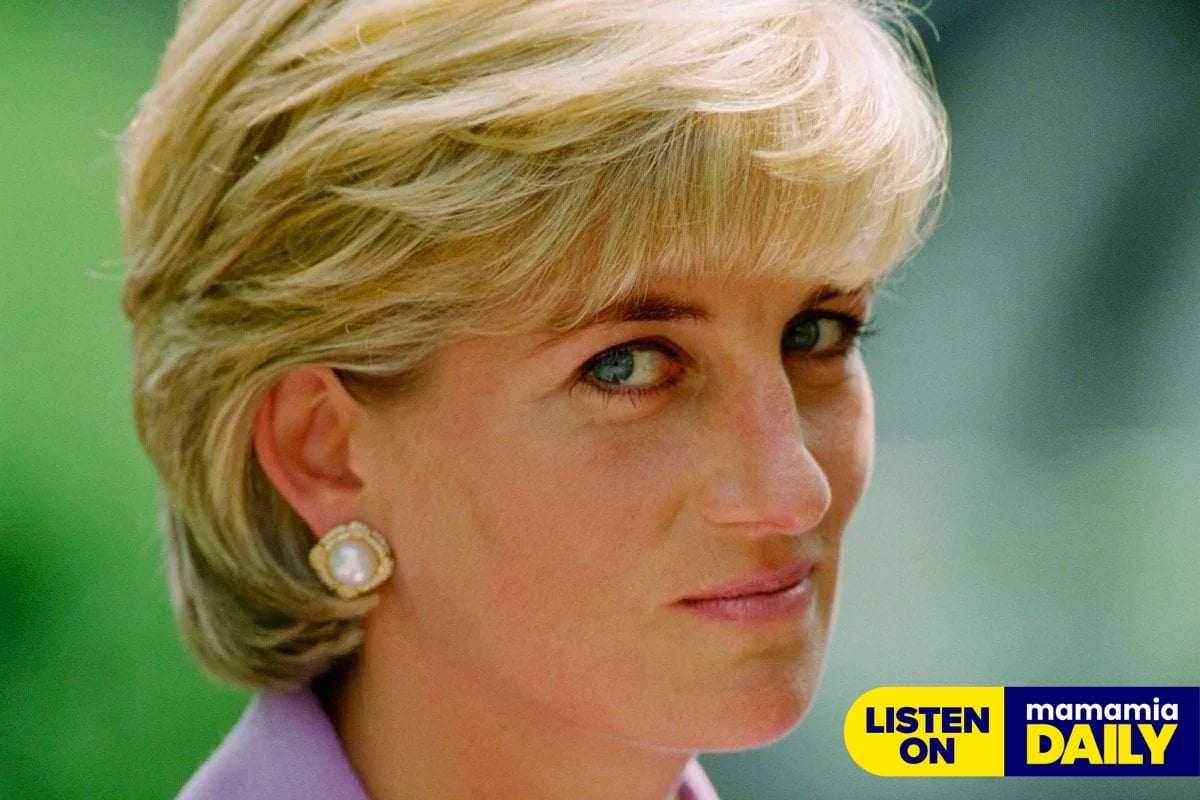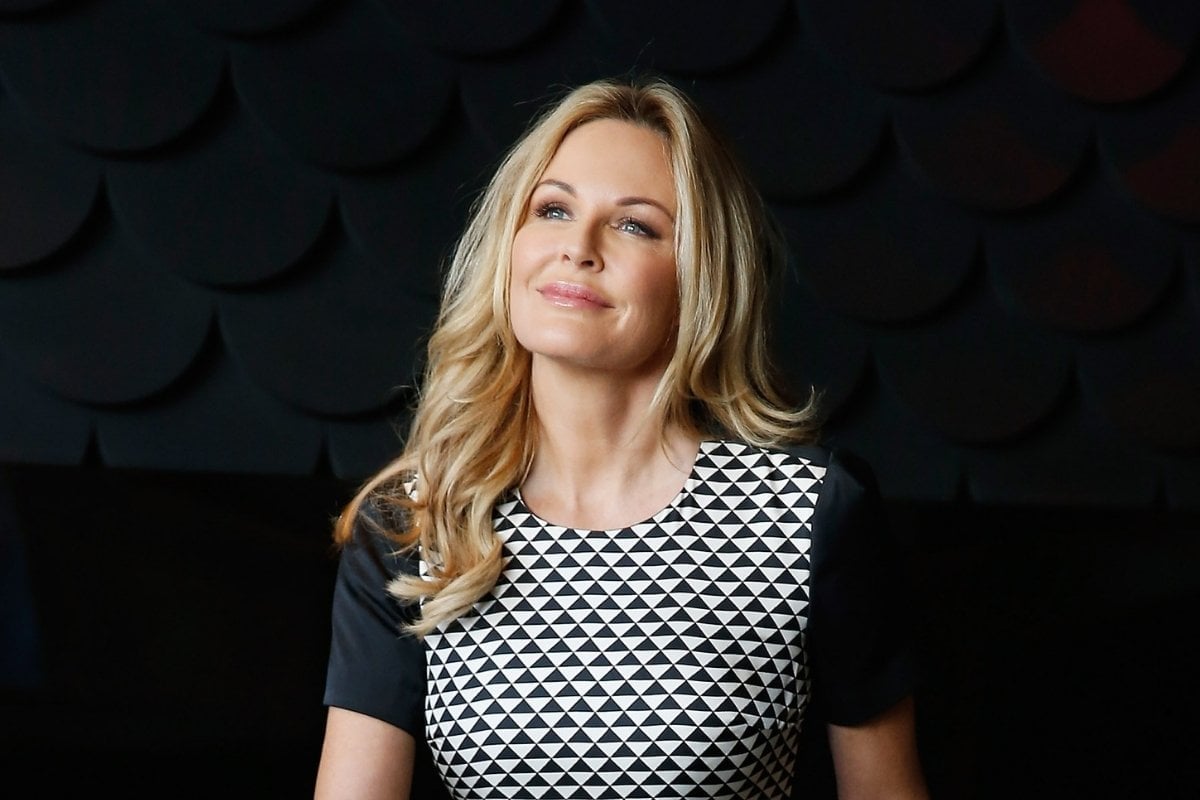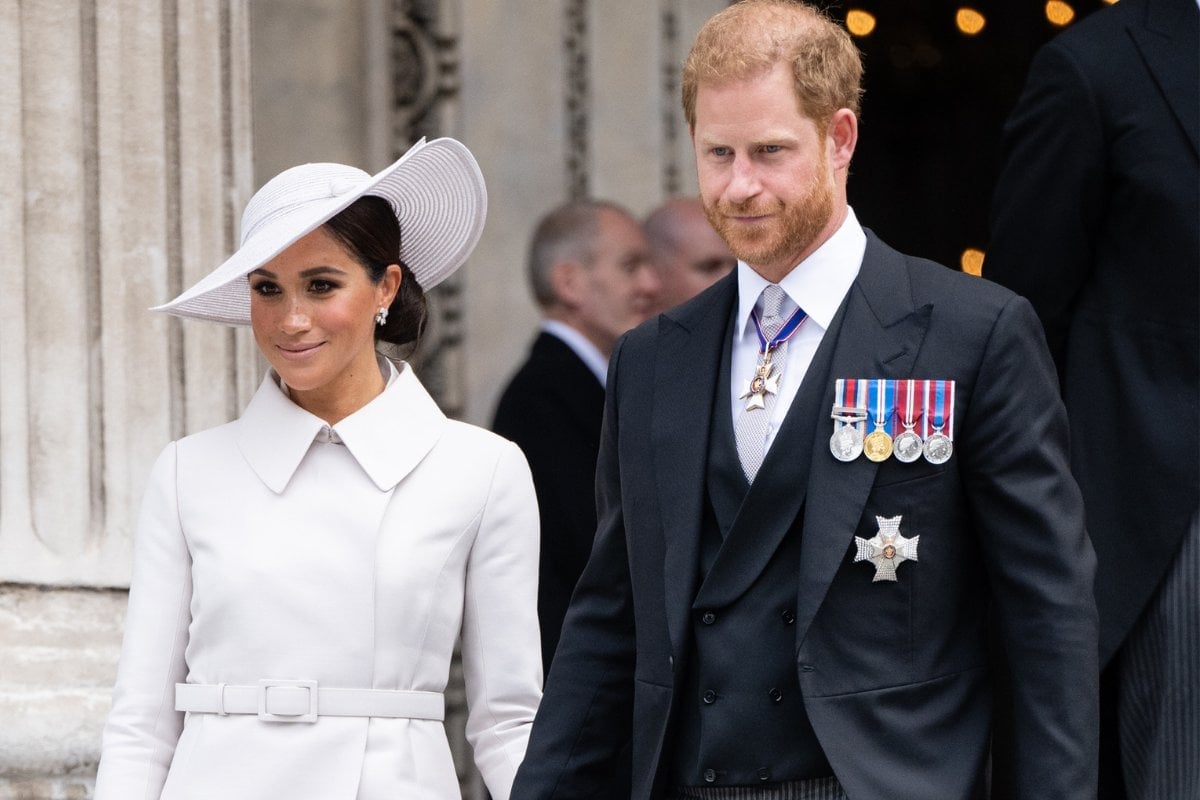
This post discusses suicide and could be distressing for some readers.
Listen to this story being read by Adrienne Tam, here.
When Princess Diana died 25 years ago, in the early hours of August 31, 1997, it sparked something that only comes around once every so often.
A global outpouring of grief - and outrage.
While it was determined that the driver of the vehicle, Henri Paul, was ultimately responsible for the car crash that killed him, the Princess, and her partner Dodi Fayed, it was also found that the paparazzi chasing the car that night likely contributed to the fatal accident.
Watch: The trailer for documentary Diana: 7 Days That Shook The Windsors. Story continues below.
They'd been hounding Princess Diana for years. And at the time of her death, having divorced Prince Charles the year prior, before embarking on a relationship with Dodi Fayed, the son of prominent Egyptian businessman, Mohammed Al-Fayed, she'd never been bigger fodder for the British tabloid press.
Paparazzi scrambled over each other to get the perfect picture, the 'money shot'. It was an unending cycle, and it ended in the most tragic, horrifying way possible.



Top Comments